
Enchanting Bophut: Koh Samui’s Coastal Gem
Bophut, nestled on the northern coast of Koh Samui, is an enchanting mix of traditional Thai culture and modern amenities. This charming neighbourhood is best known for its Fisherman’s Village, where rustic wooden houses have been converted into stylish boutiques, cafes, and restaurants, creating a unique blend of old and new. The village becomes a bustling hotspot every Friday evening with its popular Walking Street Market, offering a vibrant array of street food, local crafts, and entertainment. Beyond the village, Bophut boasts pristine beaches perfect for relaxation and water activities. The long stretch of golden sand, lined with palm trees, offers stunning views of the Gulf of Thailand and nearby islands. Whether you're looking to sunbathe, swim, or try your hand at water sports, Bophut’s beaches provide the ideal setting. For those interested in the cultural aspect, the Big Buddha Temple is just a short drive away, offering a glimpse into local spirituality and impressive coastal views. The temple complex features a 12-meter tall golden Buddha statue that stands as a beacon of peace and devotion. Another nearby attraction is the Samui Crocodile Farm, where you can witness fascinating wildlife shows. Bophut’s culinary scene is another highlight, with a range of dining options that cater to all tastes. From gourmet seafood restaurants to quaint street food stalls, you can savor the flavors of Thai cuisine as well as international dishes. The nightlife is equally appealing, with beachfront bars and live music venues providing a relaxed yet lively atmosphere well into the night.
Local tips in Bophut
- Visit the Fisherman’s Village on Friday evenings for the Walking Street Market to experience local culture and cuisine.
- Pack light and breathable clothing as the weather can be warm and humid.
- Rent a scooter for convenient and flexible travel around Bophut and nearby attractions.
- Carry cash as many local vendors and smaller establishments may not accept cards.
- Try the local seafood dishes at beachfront restaurants for a true taste of Bophut’s culinary delights.
Enchanting Bophut: Koh Samui’s Coastal Gem
Bophut, nestled on the northern coast of Koh Samui, is an enchanting mix of traditional Thai culture and modern amenities. This charming neighbourhood is best known for its Fisherman’s Village, where rustic wooden houses have been converted into stylish boutiques, cafes, and restaurants, creating a unique blend of old and new. The village becomes a bustling hotspot every Friday evening with its popular Walking Street Market, offering a vibrant array of street food, local crafts, and entertainment. Beyond the village, Bophut boasts pristine beaches perfect for relaxation and water activities. The long stretch of golden sand, lined with palm trees, offers stunning views of the Gulf of Thailand and nearby islands. Whether you're looking to sunbathe, swim, or try your hand at water sports, Bophut’s beaches provide the ideal setting. For those interested in the cultural aspect, the Big Buddha Temple is just a short drive away, offering a glimpse into local spirituality and impressive coastal views. The temple complex features a 12-meter tall golden Buddha statue that stands as a beacon of peace and devotion. Another nearby attraction is the Samui Crocodile Farm, where you can witness fascinating wildlife shows. Bophut’s culinary scene is another highlight, with a range of dining options that cater to all tastes. From gourmet seafood restaurants to quaint street food stalls, you can savor the flavors of Thai cuisine as well as international dishes. The nightlife is equally appealing, with beachfront bars and live music venues providing a relaxed yet lively atmosphere well into the night.
Iconic landmarks you can’t miss
Big Buddha Temple (Wat Phra Yai)
Explore the iconic Big Buddha Temple in Ko Samui, a stunning Buddhist landmark offering peace, culture, and breathtaking views of the surrounding waters.
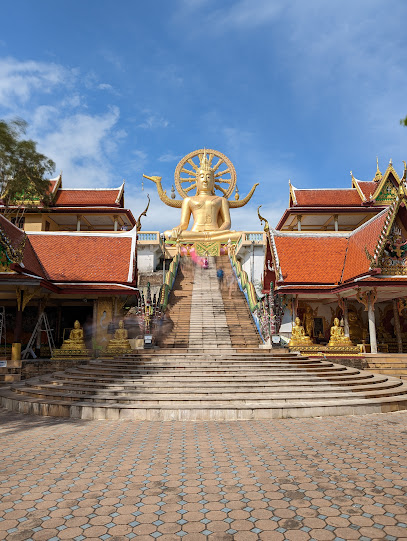
Wat Plai Laem
Discover the tranquil beauty of Wat Plai Laem, a stunning Buddhist temple in Ko Samui, Thailand, renowned for its intricate statues and serene ambiance.

Lad Koh View Point
Discover the breathtaking beauty of Lad Koh View Point in Ko Samui, Thailand, a scenic spot offering stunning ocean views and serene landscapes.
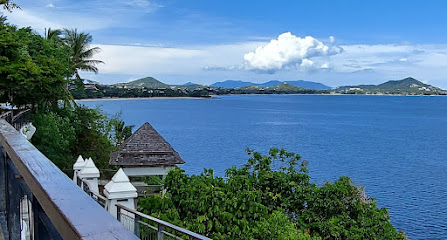
Samui Elephant Sanctuary Bophut
Discover the heartwarming journey of rescued elephants at Samui Elephant Sanctuary, a sanctuary dedicated to animal protection and conservation in beautiful Ko Samui, Thailand.
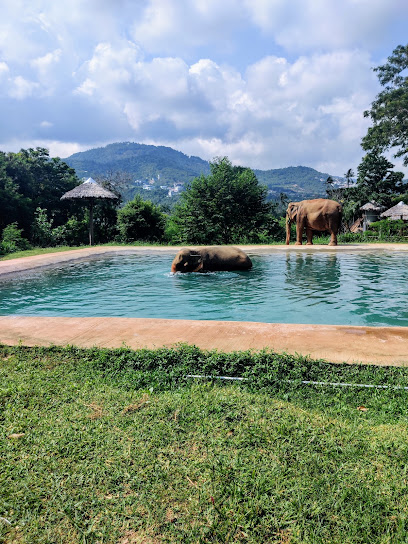
Wat Khao Hua Chuk Pagoda
Discover the tranquil beauty of Wat Khao Hua Chuk Pagoda in Ko Samui, where spirituality meets stunning views and rich Thai culture.
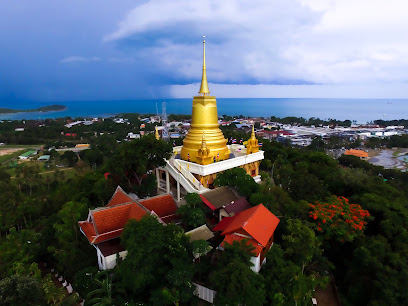
Khun Si Viewpoint
Discover the breathtaking views of Khun Si Viewpoint in Ko Samui, Thailand – a scenic spot that promises unforgettable landscapes and tranquility.
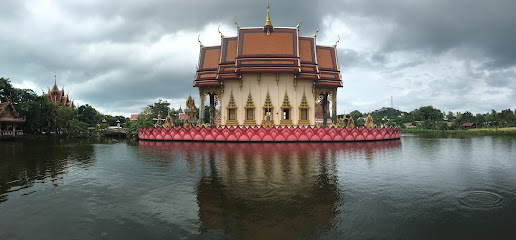
Samui View Point
Discover the stunning vistas of Koh Samui at Samui View Point, a breathtaking location for panoramic views and serene escape for all travelers.
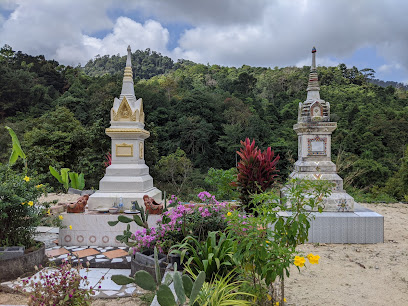
Luang Phor Thuad's Statue (หลวงปู่ทวด)
Experience the tranquility and spirituality of Luang Phor Thuad's Statue, a cultural gem on Ko Samui known for its serene beauty and local significance.
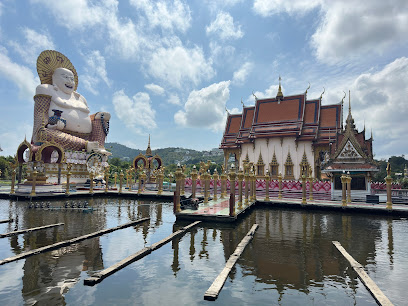
The Wharf Walking Street
Experience the vibrant atmosphere of The Wharf Walking Street in Ko Samui, where local cuisine and culture come alive at sunset.
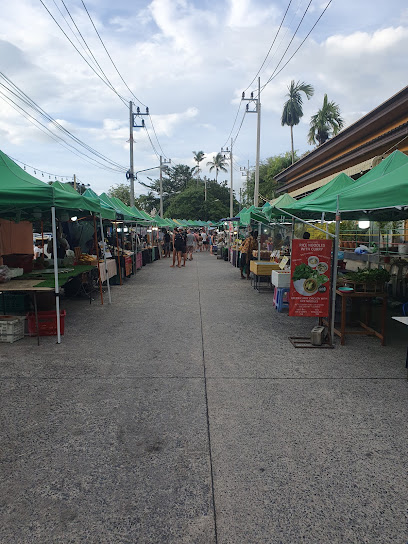
25/53 moo 6 Chaweng Bophut
Experience the thrill of the supernatural at the haunted house in Chaweng Bophut, a chilling attraction amidst the beauty of Ko Samui.
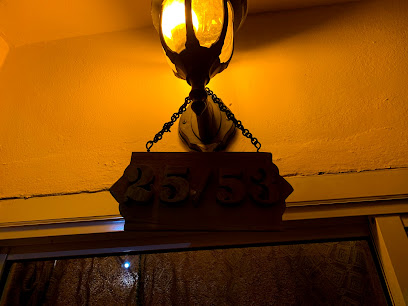
Unmissable attractions to see
Big Buddha Temple (Wat Phra Yai)
Discover the spiritual heart of Ko Samui at the Big Buddha Temple, a stunning landmark that offers breathtaking views and a serene atmosphere for all visitors.
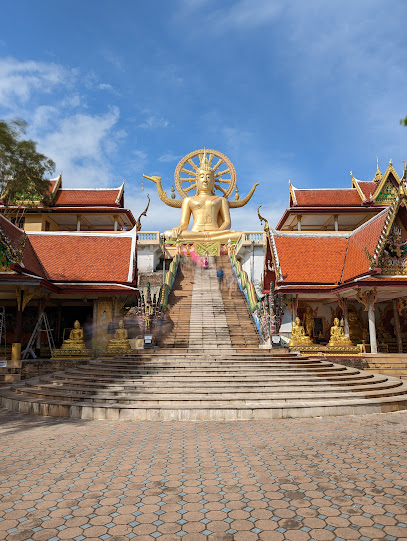
Lad Koh View Point
Experience breathtaking views at Lad Koh View Point, a scenic gem in Ko Samui, where the Gulf of Thailand meets stunning natural beauty.
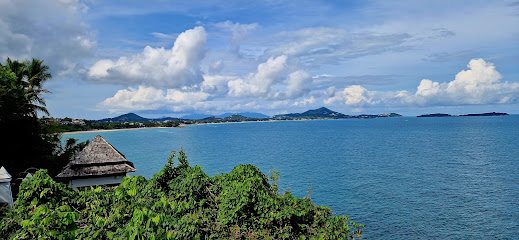
Ko Samui
Explore the beauty and culture of Ko Samui, Thailand's tropical paradise known for its stunning beaches, vibrant nightlife, and rich natural attractions.
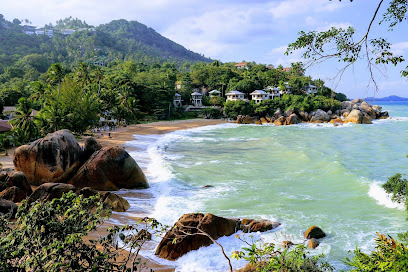
Chaweng Beach
Discover the vibrant charm of Chaweng Beach, Koh Samui's premier destination for sun, sand, and unforgettable experiences.
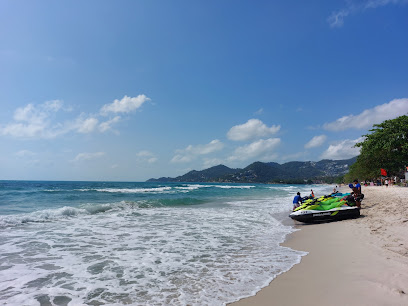
Wat Khao Hua Chuk Pagoda
Discover spiritual serenity and breathtaking views at Wat Khao Hua Chuk Pagoda, an iconic gem in the heart of Ko Samui's lush landscape.
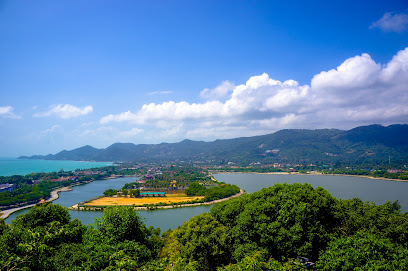
Samui Elephant Kingdom Sanctuary
Explore the Samui Elephant Kingdom Sanctuary, where you can connect with elephants and support conservation efforts in a stunning natural setting.
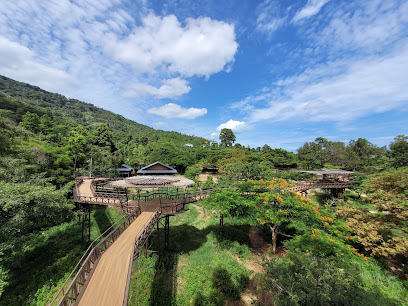
Choengmon Beach
Discover the serenity and beauty of Choengmon Beach, a tropical paradise on Ko Samui's northern coast, perfect for relaxation and adventure.
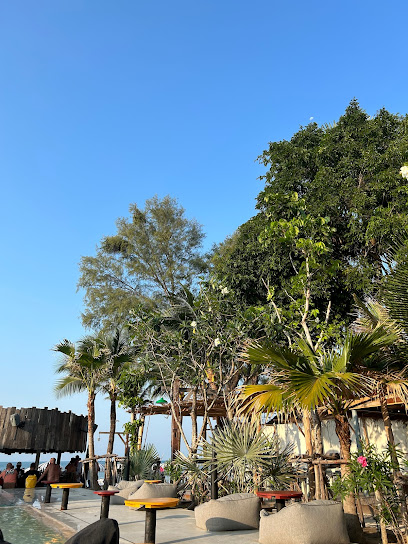
Samui Crocodile Farm
Explore the thrilling world of crocodiles at Samui Crocodile Farm, a captivating tourist attraction in beautiful Ko Samui, Thailand.
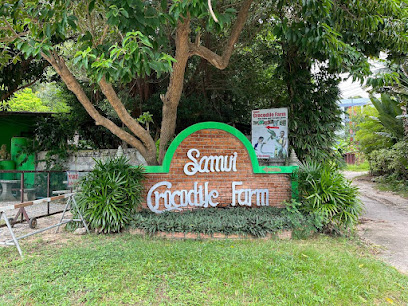
Khun Si Viewpoint
Discover the tranquil beauty of Khun Si Viewpoint, a breathtaking scenic spot in Ko Samui, perfect for relaxation and stunning photography.
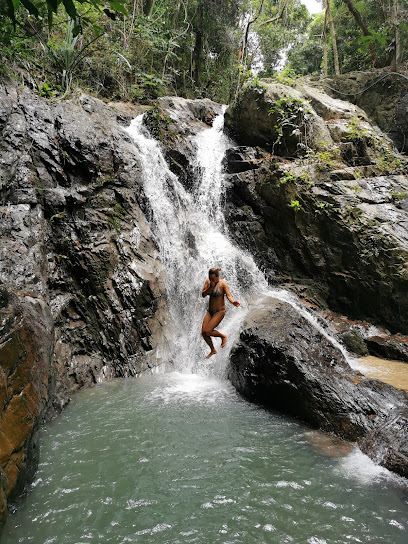
Samui View Point
Experience unparalleled vistas of Koh Samui's stunning landscapes at Samui View Point, a must-visit destination for every traveler.
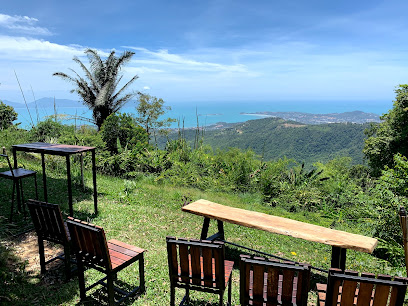
Bang Rak Beach
Discover the vibrant beauty and lively atmosphere of Bang Rak Beach in Ko Samui, Thailand, a perfect destination for relaxation and adventure.
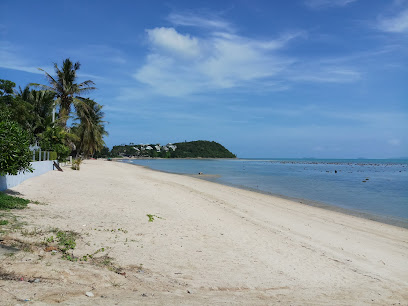
Essential places to dine
The Hungry Wolf
Discover culinary delights at The Hungry Wolf in Koh Samui – where gourmet burgers meet artisanal pizzas in a cozy atmosphere.
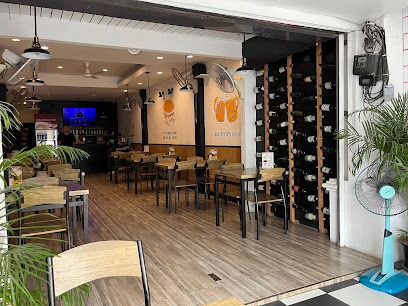
Happy Elephant
Discover authentic Thai flavors at Happy Elephant in Ko Samui – where every meal is a celebration of taste and culture.
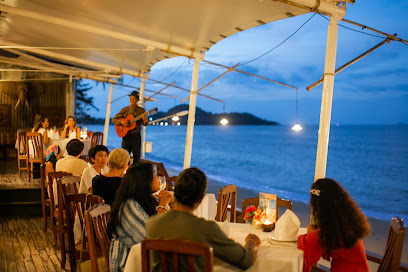
Red Moon
Experience authentic Thai flavors at Red Moon in Fisherman Village - where delicious cuisine meets breathtaking seaside views.
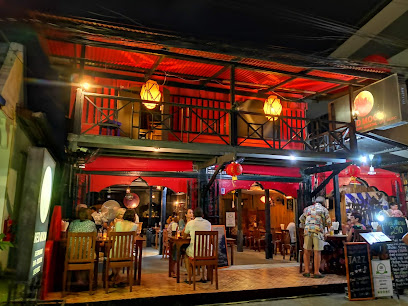
Cafe 69
Discover authentic Thai flavors and creative cocktails at Café 69 in Koh Samui's lively Bo Put district.
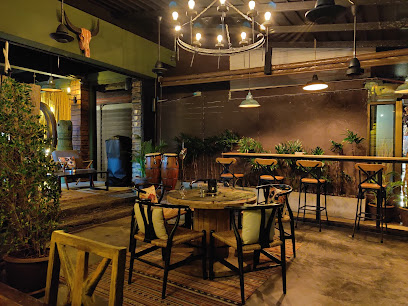
Green Bird
Experience authentic Thai flavors at Green Bird in Ko Samui – where every dish tells a story.
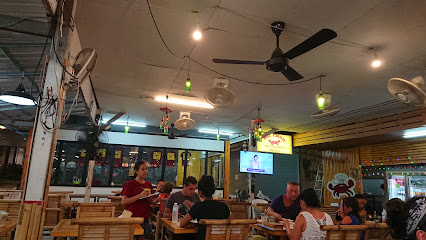
Aroy Dee
Experience authentic Thai flavors at Aroy Dee in Bo Put, Ko Samui – a must-visit restaurant for food lovers seeking genuine culinary delights.
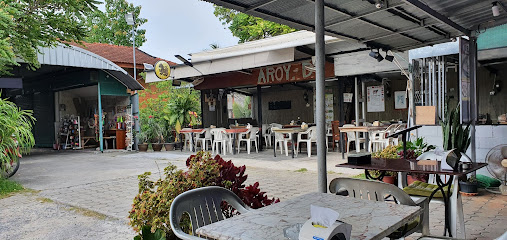
The Thai Tapas
Experience authentic Thai cuisine in a vibrant setting at The Thai Tapas in Fisherman Village, Ko Samui – where every dish tells a story.
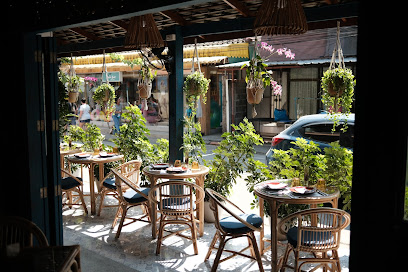
Supattra Thai Dining
Discover the rich flavors of Thailand at Supattra Thai Dining in Bophut, Koh Samui - where every dish tells a story.
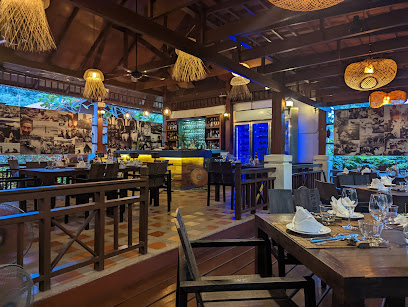
Nirvana Restaurant
Discover culinary excellence at Nirvana Restaurant in Koh Samui - where traditional Thai flavors meet modern dining experiences.
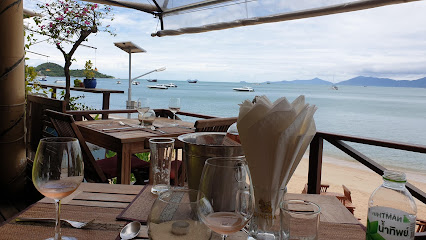
It'S All About Taste
Experience authentic Thai cuisine with stunning ocean views at It'S All About Taste in Koh Samui.
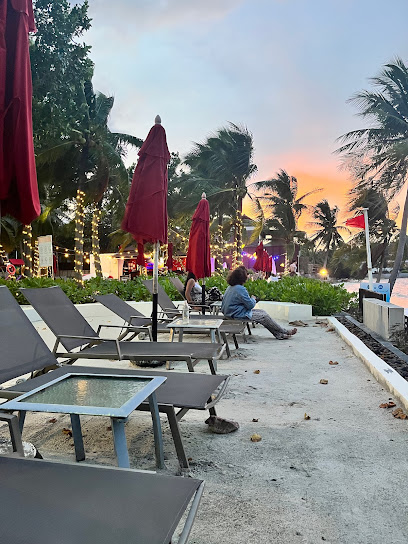
Markets, malls and hidden boutiques
Central Samui
Explore Central Samui, a vibrant shopping mall in Ko Samui filled with brand shops, delicious dining, and unique entertainment options.
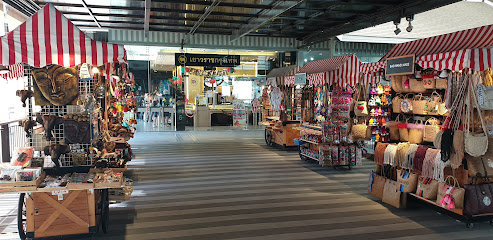
Big C Supercenter Samui
Explore Big C Supercenter Samui, a vibrant hypermarket with diverse products, local delicacies, and unique souvenirs for every traveler.
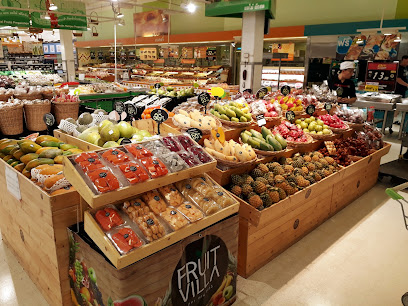
How High
Discover the vibrant cannabis culture at How High in Ko Samui, where a unique bar experience meets friendly service and beautiful resident cats.
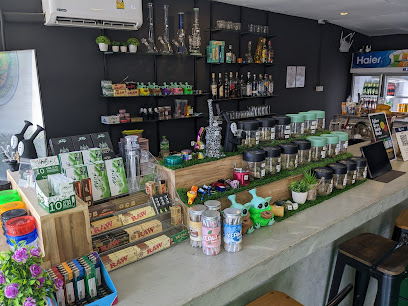
Stoners Samui
Discover the best cannabis experience in Ko Samui at Stoners Samui, where quality products and expert guidance await every visitor.
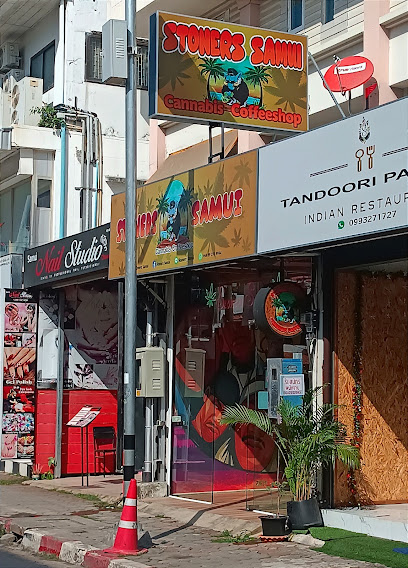
GreenShop Dispensary
Experience the best of cannabis culture at GreenShop Dispensary in Ko Samui, where quality meets a welcoming atmosphere for all enthusiasts.
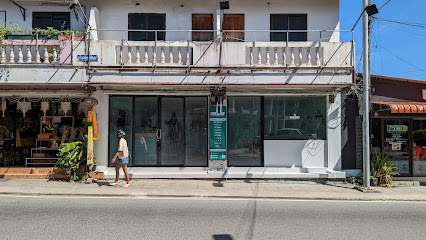
The Wharf
Experience the vibrant charm of The Wharf in Ko Samui, where shopping, dining, and local culture come together in a stunning waterfront setting.
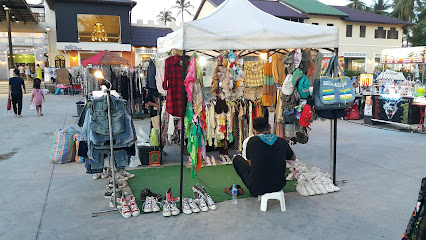
Oscars Fashion
Discover the stylish side of Ko Samui at Oscars Fashion, your go-to clothing store for unique island-inspired attire.
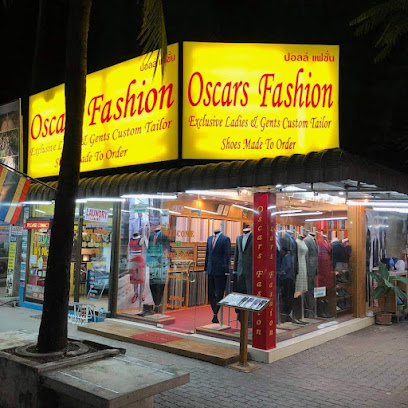
Saona Collection - Bophut
Discover stylish women's fashion at Saona Collection in Bophut, Koh Samui - a treasure trove of chic clothing and accessories.
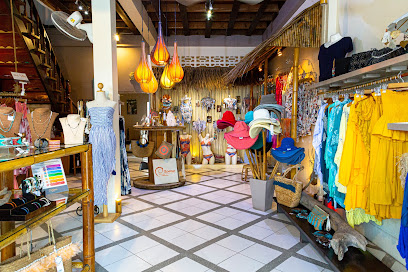
Jane's Boutique Thailand Co. Ltd.
Discover authentic Thai souvenirs at Jane's Boutique Thailand Co. Ltd. in Koh Samui, a treasure trove of unique handcrafted items and local crafts.
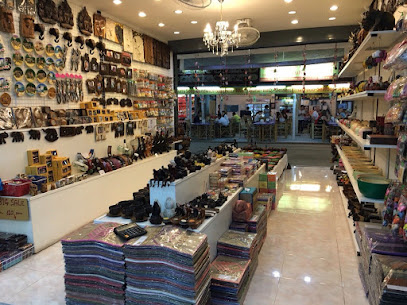
Praew Souvenir
Explore authentic Thai handicrafts and unique souvenirs at Praew Souvenir in the heart of Ko Samui's Bo Put district.
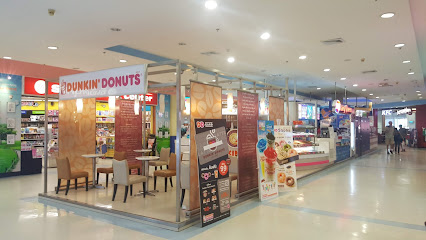
Essential bars & hidden hideouts
Chi Samui
Experience the perfect getaway at Chi Samui, where vibrant nightlife meets serene resort luxury in the heart of Ko Samui.
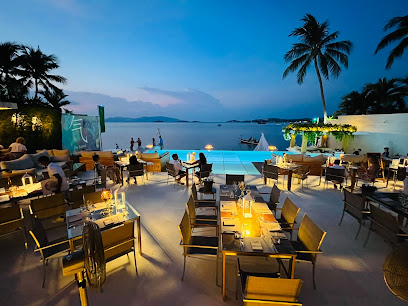
Dr Frogs Bar & Grill
Experience the perfect blend of Thai and Western flavors at Dr. Frogs Bar & Grill, a vibrant culinary oasis in Ko Samui with stunning views.
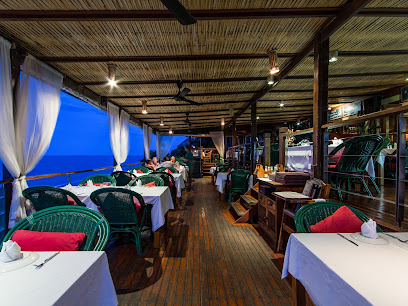
Bamboo Bar
Experience the tropical charm of Bamboo Bar in Ko Samui, where expertly crafted cocktails meet stunning views and a lively atmosphere.
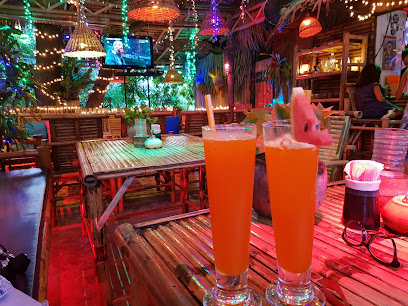
The Palms Bar & Grill Samui
Experience vibrant nightlife and tropical cocktails at The Palms Bar & Grill, Koh Samui's premier cocktail bar and live music venue.
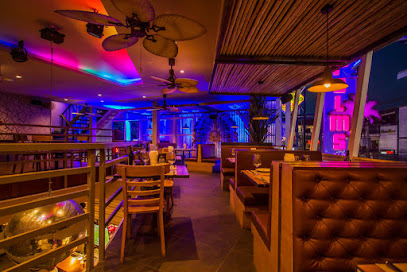
Frog and Gecko
Experience the vibrant beachside atmosphere and delicious grilled cuisine at Frog and Gecko in Ko Samui, the perfect spot for tourists dining by the sea.
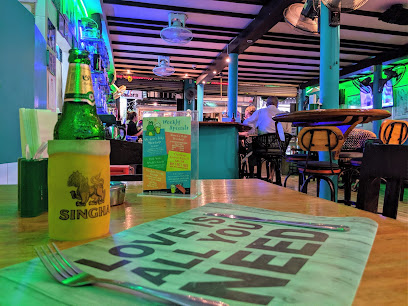
UNDER BAR
Dive into the pulsating nightlife of Koh Samui at Under Bar, where vibrant cocktails and lively music create an unforgettable experience.
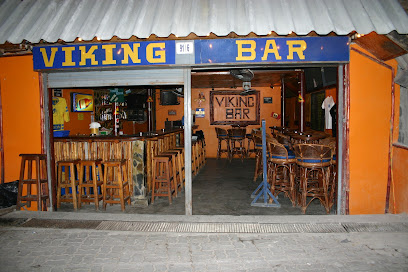
Hendrix Bar
Discover the vibrant atmosphere of Hendrix Bar in Ko Samui, where classic music and creative cocktails come together for an unforgettable night.
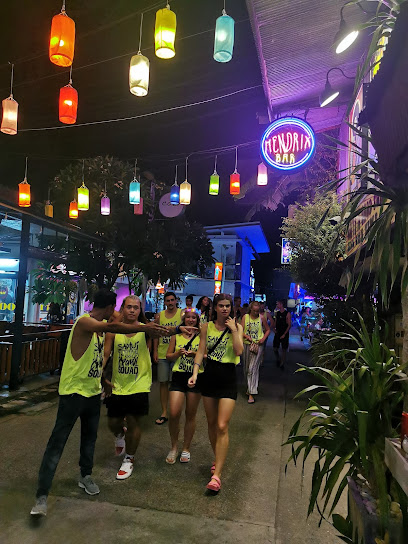
Chill Bar Samui
Explore Chill Bar Samui - the ultimate destination for live music, relaxation, and unforgettable island experiences in Ko Samui.
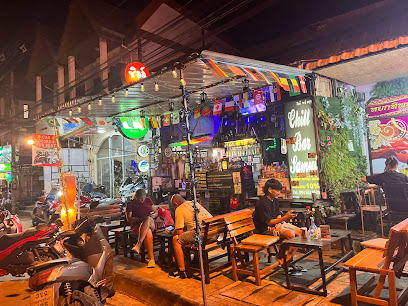
Crazy ploy bar
Experience vibrant nightlife at Crazy Ploy Bar in Ko Samui, where creative cocktails and lively entertainment await every visitor.
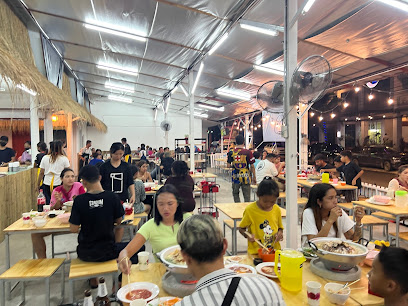
Baan jannie
Experience the charm of Baan Jannie in Bophut, Koh Samui - where delightful cuisine meets vibrant nightlife and serene guest accommodations.
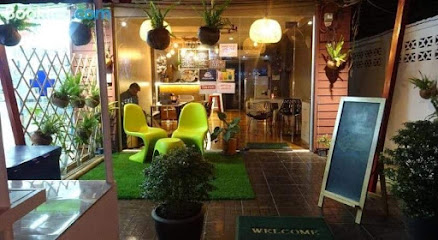
Local Phrases
-
- Helloสวัสดี
[sawasdee] - Goodbyeลาก่อน
[laa korn] - Yesใช่
[chai] - Noไม่
[mai] - Please/You're welcomeโปรด/ยินดีต้อนรับ
[proht/yin dee dton rub] - Thank youขอบคุณ
[kop khun] - Excuse me/Sorryขอโทษ
[kor toht] - How are you?สบายดีไหม
[sabai dee mai] - Fine. And you?ดีครับ และคุณ
[dee krup lae khun] - Do you speak English?คุณพูดภาษาอังกฤษได้ไหม
[khun poot paa saa ang grit dai mai] - I don't understandฉันไม่เข้าใจ
[chan mai kao jai]
- Helloสวัสดี
-
- I'd like to see the menu, pleaseขอดูเมนูหน่อยครับ
[kor doo menu noi krup] - I don't eat meatฉันไม่กินเนื้อ
[chan mai gin neuua] - Cheers!ชนเครื่องดื่ม
[chon kreung deum] - I would like to pay, pleaseขอจ่ายเงินครับ
[kor jai ngeun krup]
- I'd like to see the menu, pleaseขอดูเมนูหน่อยครับ
-
- Help!ช่วยด้วย!
[chuai duay!] - Go away!ไปห่างๆ
[pai yang yang] - Call the Police!โทรตำรวจ!
[tor tamruat!] - Call a doctor!โทรหมอ!
[tor mor!] - I'm lostฉันหลงทาง
[chan long tang] - I'm illฉันไม่สบาย
[chan mai sabai]
- Help!ช่วยด้วย!
-
- I'd like to buy...ฉันอยากซื้อ...
[chan yahk seuu...] - I'm just lookingฉันเพียงมองอย่างเดียว
[chan piang mong yang diao] - How much is it?ราคาเท่าไหร่
[raa kaa tao rai] - That's too expensiveแพงเกินไป
[paeng geern bai] - Can you lower the price?ลดราคาได้ไหม
[lot raa kaa dai mai]
- I'd like to buy...ฉันอยากซื้อ...
-
- What time is it?ตอนนี้เวลาเท่าไหร่
[dton nee welaa tao rai] - It's one o'clockเป็นโมงเดียว
[pen mong diao] - Half past (10)ครึ่งหลัง (10)
[kreung lang (sip)] - Morningเช้า
[chao] - Afternoonบ่าย
[bai] - Eveningเย็น
[yen] - Yesterdayเมื่อวาน
[meua waan] - Todayวันนี้
[wan nee] - Tomorrowพรุ่งนี้
[proong nee] - 1หนึ่ง
[neung] - 2สอง
[song] - 3สาม
[sam] - 4สี่
[see] - 5ห้า
[ha] - 6หก
[hok] - 7เจ็ด
[jet] - 8แปด
[paed] - 9เก้า
[gao] - 10สิบ
[sip]
- What time is it?ตอนนี้เวลาเท่าไหร่
-
- Where's a/the...?...อยู่ที่ไหน
[...yu tee nai] - What's the address?ที่อยู่คืออะไร
[tee yu keu a rai] - Can you show me (on the map)?คุณแสดงให้ฉันดูได้ไหม
[khun sa daeng hai chan doo dai mai] - When's the next (bus)?เมื่อไหร่รถเมล์ต่อไป
[meua rai roht mel tor bpai] - A ticket (to ....)ตั๋ว (ไป....)
[dtua (bpai...)]
- Where's a/the...?...อยู่ที่ไหน
History of Bophut
-
Bophut's history dates back several centuries, originally established as a small fishing village. The local economy relied heavily on fishing and agriculture, with the vibrant waters of the Gulf of Thailand providing sustenance and trade opportunities for the early inhabitants.
-
In the late 19th and early 20th centuries, Bophut became a prominent hub for Chinese merchants who settled in the area. They played a crucial role in developing trade routes and establishing businesses, which led to the construction of the iconic Fisherman's Village. This period marked a significant cultural exchange, with Chinese customs and architecture influencing the local way of life.
-
During World War II, Koh Samui, including Bophut, gained strategic importance due to its position in the Gulf of Thailand. The island was utilized for military purposes, and although not heavily bombed, the war altered the local economy and led to a shift from traditional fishing to cater to the needs of military personnel.
-
The late 1980s marked the beginning of a tourism boom in Koh Samui, with Bophut emerging as a favored destination due to its picturesque beaches and the charm of the Fisherman's Village. As international travel became more accessible, the area transformed with the introduction of hotels, restaurants, and shops catering to an influx of visitors.
-
Despite the rapid development, Bophut has managed to retain much of its historical charm, particularly in the Fisherman's Village, where traditional wooden houses and temples stand alongside modern establishments. Local efforts have been made to preserve this cultural heritage, ensuring that both visitors and residents can appreciate the unique blend of old and new.
Bophut Essentials
-
Bophut is easily accessible from other neighborhoods in Koh Samui. From Chaweng, you can take a local songthaew (shared taxi) which operates frequently and costs around 50-100 THB. From Lamai, the journey is similar, taking approximately 20-30 minutes. If you're coming from the airport, a taxi ride to Bophut will take about 10-15 minutes and typically costs around 300-400 THB.
-
Bophut is a compact area, making it easy to explore on foot or by bicycle. Many hotels offer bike rentals. Songthaews are available for longer distances and are a cost-effective way to travel. Taxis and motorbike taxis are also readily available, but ensure to agree on a price beforehand.
-
Bophut is generally safe for tourists, but standard precautions should be taken. Avoid walking alone late at night in poorly lit areas. Petty theft can occur, particularly in crowded places or at the Fisherman’s Village during busy nights. Stay vigilant and keep your belongings secure.
-
In case of emergency, dial 1669 for medical assistance or 191 for police. The local hospital is situated in Bophut, and there are several clinics offering medical services. Ensure you have travel insurance that covers medical emergencies. For minor health issues, pharmacies are available throughout the area.
-
Fashion: Do wear light, comfortable clothing suitable for the tropical climate. When visiting temples, dress modestly and cover shoulders and knees. Religion: Do respect local customs and practices, especially during religious festivals. Public Transport: Do be courteous and allow locals to board first. Don't engage in loud conversations. Greetings: Do greet with a slight bow and a friendly smile. Eating & Drinking: Do try the local cuisine and drink plenty of water. Don’t eat in public places like temples and markets as it may be considered disrespectful.
-
To experience Bophut like a local, visit the Fisherman’s Village on Fridays when the night market is held, offering local foods and crafts. Engage with local vendors and try street food delicacies. Take a cooking class to learn how to make traditional Thai dishes. Explore the quiet beaches in the early morning or late afternoon for a more tranquil experience.
Nearby Cities to Bophut
-
Things To Do in Surat Thani
-
Things To Do in Nakhon Si Thammarat
-
Things To Do in Chumphon
-
Things To Do in Ranong
-
Things To Do in Krabi
-
Things To Do in Trang
-
Things To Do in Phuket
-
Things To Do in Satun
-
Things To Do in Hua Hin
-
Things To Do in Langkawi
-
Things To Do in Rayong
-
Things To Do in Koh Rong
-
Things To Do in Pattaya
-
Things To Do in Koh Kong
-
Things To Do in Trat








